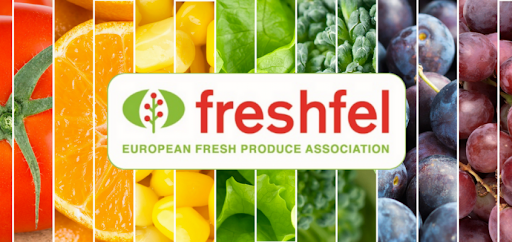Freshfel Europe calls for equal and efficient distribution of fresh produce
Freshfel’s General Delegate Philippe Binard was a keynote speaker at the conference ‘An EU School Scheme Fit for the Future’ hosted by the European Commission. Reviewing the economic aspects of the Scheme, Freshfel Europe stressed the value of continued implementation as well as areas in need of improvement to ensure the equal, efficient, and educational distribution of fresh fruit and vegetables to European school children.
The consumption of fresh fruits and vegetables in the EU is still well below the WHO minimum recommended daily intake of 400g per day. The lowest consumption levels are being seen among children and young adults, many eating at best only 200g per day, sometimes even much less. Obesity rates among children remain extremely worrying and unhealthy diets increase the risk of obesity epidemics and Non-Communicable Diseases (NCD), including cardio-vascular diseases, type 2 diabetes, and certain cancers. To reverse the negative trends, it is imperative to educate the youngest by introducing them to the taste, texture and diversity of fruit and vegetables.
While the EU is currently evaluating the future of the scheme, Freshfel Europe reminded of its relevance to educate children on the taste, texture and diversity of fresh fruit and vegetables. Freshfel Europe General Delegate Philippe Binard said: “It is important that the School Scheme primarily stick to its health and nutritional value. Educating the youngest is key to reversing the obesity rate and moving children towards a healthier diet for their future. The cost of social security due to unhealthy diets is at least twice the value of the food market.” Today, close to 17 million children have access to the School Scheme, based on a policy with a €130 Mio EU budget, sometimes topped up by additional resources from national budgets. The EU budget allows for the yearly distribution of around 70,000 tons of fresh fruit and vegetables every school term.
Considering that the volume at stake is not significant, the primary economic benefits for the sector are long-term, with indirect but essential effects for the fresh produce sector.
Binard said: “Being a health driven programme, the main beneficiaries are the children who are being educated to taste, texture and diversity while improving their health while the sector is securing for the future consumers, well acquainted with fresh produce. It also has a far-reaching societal benefit, for instance through reduced pressures and costs on social benefits and health care by contributing to healthier citizens.”
Moreover, Freshfel Europe underlined that the School Scheme contribute to implement several of the United Nation’s Sustainable Development Goals and is also well enshrined within the objectives of EU strategies such as the EU Green Deal, the Farm to Fork Strategy and the EU Beating Cancer Plan, aiming at moving towards a plant diet and healthy sustainable diet. The Scheme is a long-term investment, based on fruit and vegetable distribution mechanisms with educational tools.



